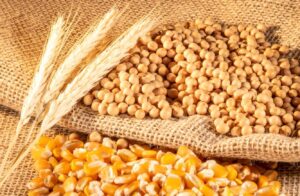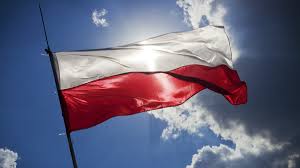
After the full-scale invasion and blocking of seaports in 2022, Ukraine began to actively use land routes for exporting agricultural products, which significantly reduced the transit of agricultural products through the EU, according to the Ukrainian Agribusiness Club (UCAB).
Analysts noted that the maximum volume exported across the borders of neighboring countries was 3.7 million tons of grains, oilseeds and their products in August 2023, when the “grain corridor” had already stopped working and Ukraine’s own sea route had not yet started working.
Experts stated that the structure of exports by country was as follows: Romania – 73% of the total exported volume (thanks to the seaport of Constanta), Poland – 14%, Hungary – 9%, Moldova – 2%, and Slovakia – 2%.
“Establishing its own export route has allowed Ukraine to reduce transit through neighboring countries. Over the past 6 months of 2024, the average monthly volume of exports through neighboring countries decreased by 3.7 times compared to the peak figure and averaged 1.0 million tons of grains, oilseeds and processed products,” the UCAB emphasized.
At the same time, in December 2024, compared to the peak, exports through the Romanian border decreased by 8.2 times to 0.3 million tons, Polish – by 1.9 times to 0.3 million tons, Hungarian – by 1.9 times to 0.2 million tons, Moldovan – by 8.9 times to 0.01 million tons and Slovak – by 12.0 times to 0.01 million tons.

In 2024, Ukraine transported about 11.36 million tons of Russian oil through the southern branch of the Druzhba pipeline, reducing transit by 16% compared to last year.
“This is the lowest value at least since 2014, and probably in the entire history of Ukraine’s independence since 1991,” former Energy Minister Olha Buslavets posted on Facebook late last week.
According to her, most of the Russian oil in 2024 was supplied to Hungary – more than 4.7 million tons, which is almost the same as in 2023. In addition, 3.9 million tons of oil were transported to Slovakia (-15%) and 2.7 million tons (-35%) to the Czech Republic.
As reported, in July 2024, Ukraine tightened sanctions against Russia’s LUKOIL, effectively banning the transit of oil to Central Europe through the Ukrainian section of the Druzhba pipeline. The company was a major supplier of raw materials to both Hungary (about a third of the country’s imports) and Slovakia (40-45%).
At the same time, in September, the Hungarian MOL Group announced an agreement with Russian oil suppliers and pipeline operators to ensure its transportation via the Druzhba pipeline through Belarus and Ukraine to Hungary and Slovakia. According to MOL Group, the company has taken over ownership of the relevant volumes of crude oil on the border of Belarus and Ukraine.
Also in September, EC spokesman Olof Gill said that after Ukraine banned LUKOIL’s oil transit to Hungary and Slovakia, the European Commission (EC) quickly took all necessary steps to resolve the issue. He noted that LUKOIL is not the only oil supplier to Hungary and Slovakia.

President Volodymyr Zelenskyy says Ukraine will not continue to transit Russian gas.
“We will not continue the transit of Russian gas, we will not allow them to earn additional billions on our blood. Any country in the world that can get something cheap from Russia will eventually become dependent on the Russian Federation, whether tomorrow or in a month or a year. This is their policy. Therefore, we will not transit Russian gas,” Zelenskyy said at a press conference in Brussels on Thursday.
Zelenskyy noted that in a conversation with the Prime Minister of Slovakia, he said that if there is not Russian gas, but gas from another country, and there is no payment to Russia until the end of the war, Ukraine is ready to consider this option.
At the same time, Zelenskyy emphasized that Ukraine would not allow additional earnings for Russia.

Slovakia will hold a series of talks starting next week to secure gas supplies from Russia after its current transit contract, which involves Ukraine, expires at the end of this year, Reuters reported on Friday, citing government officials.
“In the coming days, in particular during the Christmas holidays, you can witness extremely intense negotiations at different levels and in different countries, which will begin next week,” Slovak Prime Minister Robert Fico said at a press conference.
Denisa Sakova, Deputy Prime Minister and Minister of Economy of Slovakia, said that the talks would involve the European Commission, Ukraine and EU member states.
Fico said that he sought to ensure the continuation of supplies from the east to avoid additional fees for gas transit from other directions. “We see no reason to pay more for gas than necessary for geopolitical reasons… I believe that even if there is a short-term interruption of supplies from the east, we have enough reserves to find a common solution for several EU countries, and we will keep gas transit through Slovakia, as well as gas transit through Ukraine,” he said.
Reuters notes that Slovak officials have been looking for alternative gas transit schemes through Ukraine that would not require a direct agreement between Ukraine and Russia, but have not reached any agreement.
Slovakia reportedly has a long-term contract with Russia’s Gazprom and would like to keep importing Russian gas through Ukraine, but it will end at the end of 2024, as Ukraine does not plan to extend the transit contract with Gazprom.
Earlier, Hungarian Foreign Minister Péter Szijjártó said that Hungary and Bulgaria had found a legal and financial solution acceptable to the parties to continue the transit of Russian gas through their countries in the face of US sanctions against Gazprombank.
Hungary receives Russian gas through the Turkish Stream pipeline from Russia to Turkey and then transits through Bulgaria to Hungary. Hungary has received the bulk of its gas consumption through this route – this year, more than 7 billion cubic meters.
At the same time, Bloomberg, citing the Bulgarian Ministry of Energy, reports that “only a ‘solution’ to the problem was discussed, which would include Hungary and allow Bulgaria to continue receiving transit fees after the arrival of Russian gas.” Bulgaria has previously warned that it may stop transiting Russian gas to Central Europe if Gazprom does not find a payment solution, the agency reminds.

European Commissioner for Energy Kadri Simson says the European Union is ready to completely stop the transit of Russian gas through the Ukrainian gas transportation system after the expiration of the current contract in December this year.
“When I spoke with my colleagues in Ukraine, I made it clear that we are preparing for a situation where the transit agreement between Ukraine and Russia will expire by the end of this December. We have found alternative supply routes, and the Member States or their companies that are still receiving gas from Russia have in fact been granted two additional years compared to other companies that Russia has decided to stop supplying to in 2022,” the European Commissioner said at a press conference in Brussels on Wednesday.
At the same time, Simson stated that Ukraine’s gas transportation infrastructure is also part of the EU’s infrastructure, as part of the European gas is stored in Ukraine’s storage facilities, “which provide us with additional capacity.”
“Ukraine is also a gas producer, so we have to make sure that their infrastructure still has value. But my message is very clear: there is no need to look for any new ways to continue trading with Gazprom. Alternative supplies are available, and we are engaging with affected member states to show them that alternative routes will deliver the volumes they need,” she elaborated.
Simson also referred to the words of Ukrainian President Volodymyr Zelenskyy, who said in late August that “Ukraine is not interested in extending the transit contract with Russia, and that European companies have the right to use Ukrainian infrastructure.”
According to the European Commissioner, her “main mission is to encourage companies that are still receiving Russian pipeline gas because they had contracts signed before the war to choose more predictable alternatives.”
Simson also cited figures showing that the share of Russian gas in EU imports fell from 45% in 2021 to 18% by June 2024, while imports from reliable partners such as Norway and the United States increased. In addition, the EU reduced gas demand by 138 billion cubic meters between August 2022 and May 2024.
“The EU reached its 90% winter gas storage target on August 19, 2024, well ahead of the November 1 deadline, and energy prices are more stable and remain well below the peak levels of the 2022 energy crisis,” she elaborated.

It is advisable for Poland to maintain the blockade on Ukrainian grain imports, but transit should be allowed when transshipment capacities are free in Polish ports, President of the Grain and Feed Chamber of Poland Monika Pątkowska said in an interview with farmer.pl.
“Today it would be better if the blockade of grain imports is maintained, and when it comes to transit, we could implement it to some extent and thus help Ukraine when we have free handling capacities in Polish ports,” she said.
Pętkowska noted that Polish ports were not 100% loaded in the first quarter of 2024.
“We have to conclude that our port infrastructure, but also the railroad infrastructure is inefficient. Now is the right time to expand it. I believe that we slept through the last two years in this context. Romania has received funds from the European Union and is expanding its infrastructure, while Poland has not done it so far,” the public figure emphasized.
She is sure that Poland should show both Ukraine and the international community that it wants to help effectively but, on the other hand, firmly protects the interests of the Polish farmer. These two goals, in her opinion, should be combined.
“The sooner we come to a mutual understanding, the sooner we develop mechanisms, the less complicated will be the atmosphere that may hinder our broader cooperation not only with Ukraine, but also in the European arena,” summarized the president of the Polish Grain Chamber.